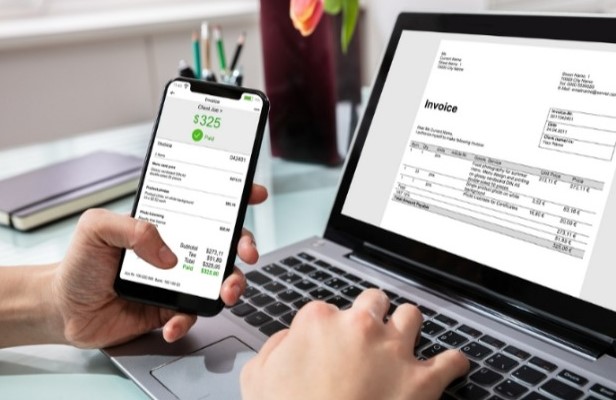Starting a business is certainly not easy but successfully expanding one brings its own set of challenges. One is that your accounting and financial information becomes increasingly complex. Keeping track of everything on spreadsheets (or even pen and paper) becomes increasingly time-consuming, difficult and, at a certain point, infeasible. This is where specialist accounting software can prove invaluable.
Invoicing and billing customers
One of the most important aspects of any business is ensuring you get paid promptly by your customers. Manually creating an invoice for every order is labour-intensive and presents the opportunity for human error. It can also be challenging to keep track of invoices and chase up any late payments to keep your cash flow flowing. Financial software packages from specialists can streamline the process, bringing in elements of automation and making repeat invoices to existing customers a breeze. Brand new quotes, estimates and invoices can also be easily created, tracked and stored.
It's also worth noting that there are specific legal requirements for what must be included on an invoice, depending on factors including whether the business is classed as a sole trader or limited company and whether it is VAT-registered. Using accounting software can ensure that all invoices meet these requirements. Taking care of your invoices and bills in a digital format is also greener than traditional methods and the mountains of paper they require.
Managing payroll
Making sure you get your payroll right is not only crucial for your employees and your cash flow but is also a legal obligation. There are numerous things you need to remember about payroll such as sending your FPS as well as your year end submission that can make it very complex to keep track of as your workforce grows. Solutions like cloud-based payroll software can streamline and automate processes like generating payslips and associated tax calculations. That can help eliminate errors, keep your relationship with employees on the right track, and make sure you maintain compliance.
Tracking income and expenses
Whether you are a new business ploughing money and investment into your start-up costs, or an established brand looking to expand, there are all manner of income and expenses to keep track of. Making sure you are on top of this is vital for cash flow, future decisions and the overall health of your business and accounting software can help you keep track of this constant movement of money.
You can not only track what comes in and out but view what you are owed and expenses that are coming due for an accurate near-medium future view. Dashboards can also help you visualise these predictions or provide a snapshot of exactly how your business finances are performing. Many elements of bookkeeping can be automated, with tasks that would otherwise be complex, like tracking cash flow through different currencies being carried out automatically.
Generating reports
The more you understand your finances, the more successfully you can run your business. Having a clear view of how different parts of the firm are performing can help you plan for the future and identify and respond to opportunities and challenges. Specialist accounting software can help you to drill into complex financial data to gain valuable, actionable insights.
For a snapshot of your business finances, for example, you can create balance sheets showing your business' assets, liabilities, and owner or shareholder equity at a specific time. Profit and loss statements, meanwhile, can be valuable for tracking business performance over a given period (usually a quarter of the fiscal year). Detailed reports are essential for making business decisions and securing credit and investment when needed.
Keeping your tax affairs in order
Making Tax Digital is the biggest shake-up to the UK's tax regime in decades. According to HMRC, the ambition of the scheme is to become one of the most digitally advanced tax administrations in the world. They say that it will make the tax system "more effective, more efficient and easier for taxpayers to get their tax right". It also requires the right software to record, report and make the necessary tax payments. This could include 'bridging software' that allows you to transfer data from spreadsheets to HMRC systems but using dedicated accounting software that is fully compatible with HMRCs is far more efficient.
Using accounting software for tax also helps ensure your accounts are complete, accurate, up to date and free from errors. It can also help you to get a grip on VAT, which can add another layer of complexity to your financial records and data.
Specialist accounting software can help enterprises of all shapes and sizes to organise and make sense of the complex financial information that comes with running a business.
[ymal]














